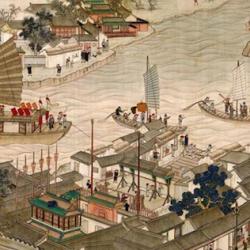In a brief review of recent Asian Church history (From Every Tribe and Nation), Mark Noll makes the arresting comment that “Mao Zedong counts as one of the most significant figures in modern church history.” Noll hastens to add this was not Mao’s intention; rather, it is “because of what happened inadvertently through his actions.”
Noll elaborates, “Mao attacked Confucian culture as one of the ‘olds’ that the Communist regime would replace with his own Thought; in so doing he loosened the grip of this conceptual system and made it possible for the Chinese to think about alternative ways of construing the world. Then, by expelling all Western missionaries, Mao also decisively broke the image of Christianity in China as a mere appendage of Western religious movements. Both the Three Self Patriotic Church that took shape under Communist control and the unregistered churches that stayed out of the Three Self Movement were, whatever else anyone might say about them, obviously Chinese. But then the disasters of Mao’s own regime – with millions imprisoned, starved, killed, or displaced – demonstrated the inability of his form of communism to satisfy social or personal human needs. The result . . . was much greater opportunity for other forms of self-guided organization. In that environment, a number of different forms of Christian faith emerged out of the background, where they had bided time during the period of intense persecution. These different forms have continued to expand with great diversity to the present. But now, in contrast to the years before the triumph of Communist rule, they exist unquestionably as Chinese churches charting their own path” (163).
Mao, in short, inadvertently helped Christianity “become a distinctly Chinese religion” (162).














